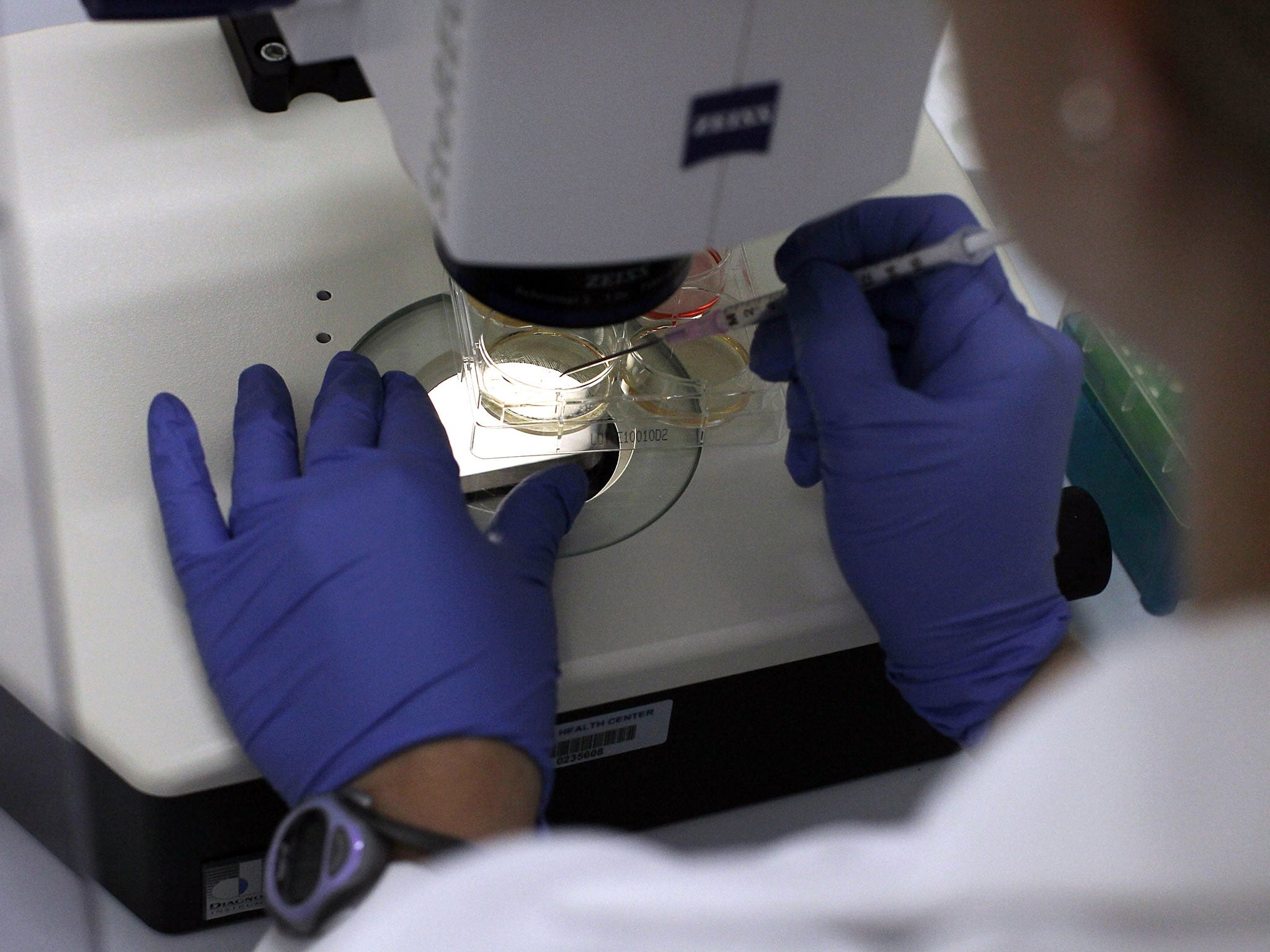Scientists challenge patent ban for embryonic stem cell research
Researchers and biotech firms say European court ruling will deter investors from funding new cures

Your support helps us to tell the story
From reproductive rights to climate change to Big Tech, The Independent is on the ground when the story is developing. Whether it's investigating the financials of Elon Musk's pro-Trump PAC or producing our latest documentary, 'The A Word', which shines a light on the American women fighting for reproductive rights, we know how important it is to parse out the facts from the messaging.
At such a critical moment in US history, we need reporters on the ground. Your donation allows us to keep sending journalists to speak to both sides of the story.
The Independent is trusted by Americans across the entire political spectrum. And unlike many other quality news outlets, we choose not to lock Americans out of our reporting and analysis with paywalls. We believe quality journalism should be available to everyone, paid for by those who can afford it.
Your support makes all the difference.Scientists and lawyers in Britain are challenging a European ban on the patenting of embryonic stem cells which they believe is blocking the development of new treatments for a range of illnesses including diabetes, heart disease and Parkinson’s.
They have been joined by a High Court judge who has asked the Court of Justice of the European Union in Luxembourg to clarify its decision to prevent the patenting of stem cell research involving the use and destruction of human embryos. Medical researchers and biotechnology firms are incensed by the European court’s ban on stem cell patents. They say it is deterring investment in Europe while scientists in Asia forge ahead with research into new medical treatments based on embryonic stem cells.
Sir Ian Wilmut, who cloned Dolly the sheep, and Professor Austin Smith of the Wellcome Trust Centre for Stem Cell Research at Cambridge University, said that banning patents has effectively removed the protection of intellectual property that is crucial for commercial investment.
Their concerns have now been voiced by Henry Carr QC, a deputy judge of the High Court, who questioned whether the European court really understood the scientific basis of its ban, which it issued last year.
The European court ruled that German scientists could not patent a technique based on human embryonic stem cells because it involved the destruction of something “capable of commencing the process of development of a human being” – in other words a human embryo.
However, Mr Carr said that the definition of a human embryo used by the court may be too broad because it included types of artificially created “embryos” that are not capable of developing into a foetus.
“Stem cells have the potential to revolutionise the treatment of human disease. Because of their capacity to differentiate into almost any type of adult cell, human stem cells open the door to a wide variety of new therapies and other medical applications,” Mr Carr said in his judgment on a patent appeal case. “However, to exclude [from patentability] processes of development which are incapable of leading to a human being does not, in my view, strike a balance at all… It is more akin to a total exclusion from patent protection of the fruits of stem cell research, to the detriment of European industry and public health.”
Professor Pete Coffey of University College London, who is conducting one of the first clinical trials of stem cells to treat progressive blindness, said the ban on patenting stem cell research could harm its future development in Britain and Europe. “It creates [funding problems for] this kind of translational research – taking ideas from the lab into the clinic,” he said.
The US Supreme Court ruled yesterday that genes extracted from the human body cannot be patented.
Join our commenting forum
Join thought-provoking conversations, follow other Independent readers and see their replies
Comments